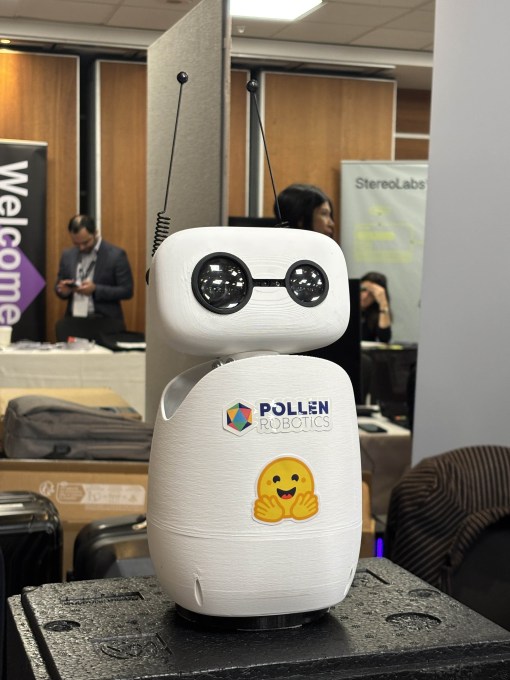Hugging Face, a leading AI development platform, has taken a significant step forward in the world of robotics with the launch of two innovative humanoid robots: HopeJR and Reachy Mini. These open-source robots are designed to make robotics more accessible and affordable, breaking down barriers to entry for researchers, developers, and enthusiasts alike.

HopeJR is a full-size humanoid robot boasting 66 actuated degrees of freedom, allowing for independent movements such as walking and arm manipulation. This impressive machine has been designed to operate at a fraction of the cost of traditional humanoid robots, with Hugging Face estimating a price tag of around $3,000 per unit.
The smaller Reachy Mini is a desktop unit that can move its head, engage in conversation, listen, and be utilized for testing AI applications. With an estimated cost of $250-$300, depending on tariffs, Reachy Mini offers an affordable and versatile solution for those looking to explore the potential of AI-driven robotics.
Hugging Face's commitment to open-source robotics is evident in their approach to these new robots. The company's co-founder and CEO, Clem Delangue, emphasized the importance of making these robots accessible to all, stating, "The important aspect is that these robots are open source, so anyone can assemble, rebuild, [and] understand how they work, and [that they’re] affordable, so that robotics doesn’t get dominated by just a few big players with dangerous black-box systems."
This latest venture into robotics was made possible through Hugging Face's acquisition of Pollen Robotics, a humanoid robotics startup, in April. Delangue credits the Pollen team with providing the "new capabilities" required to bring these robots to life.
Over the past few years, Hugging Face has been actively expanding its presence in the robotics industry. In 2024, the company launched LeRobot, a comprehensive collection of open AI models, datasets, and tools for building robotics systems. This year, Hugging Face has continued to push the boundaries, releasing an updated version of its 3D-printed and programmable robotic arm, the SO-101, in partnership with French robotics firm The Robot Studio. Additionally, the company has expanded its LeRobot platform through a collaboration with AI startup Yaak, adding training data for self-driving machines.
With the introduction of HopeJR and Reachy Mini, Hugging Face is not only making robotics more accessible but also fostering innovation and collaboration within the industry. These open-source robots have the potential to revolutionize the way we approach robotics, opening up new possibilities for research, development, and application in a wide range of fields.